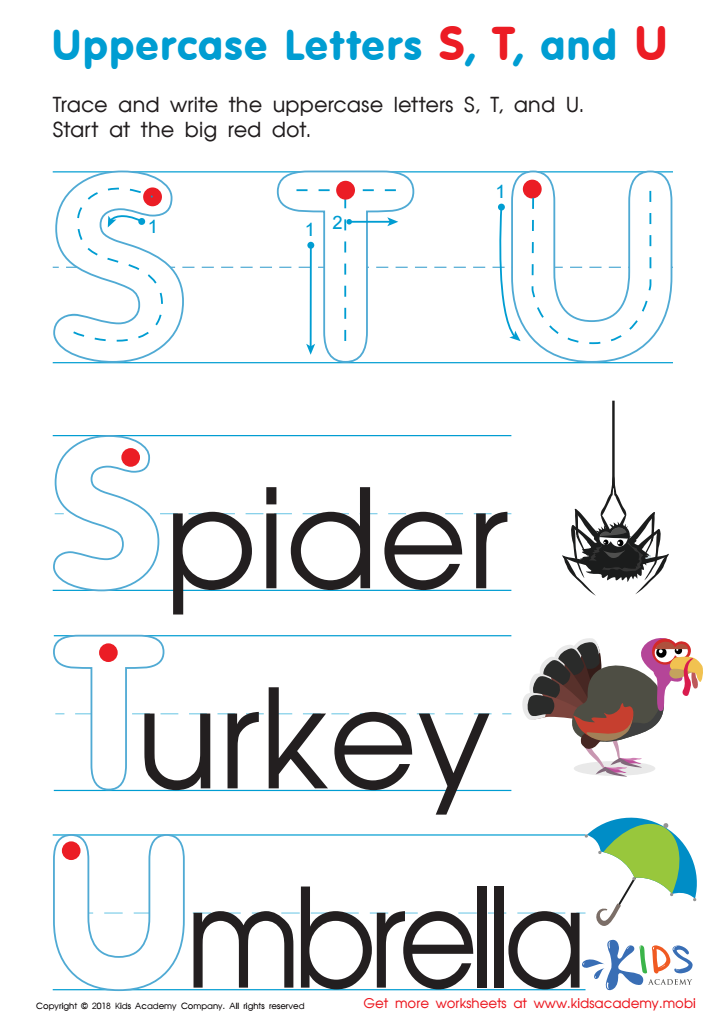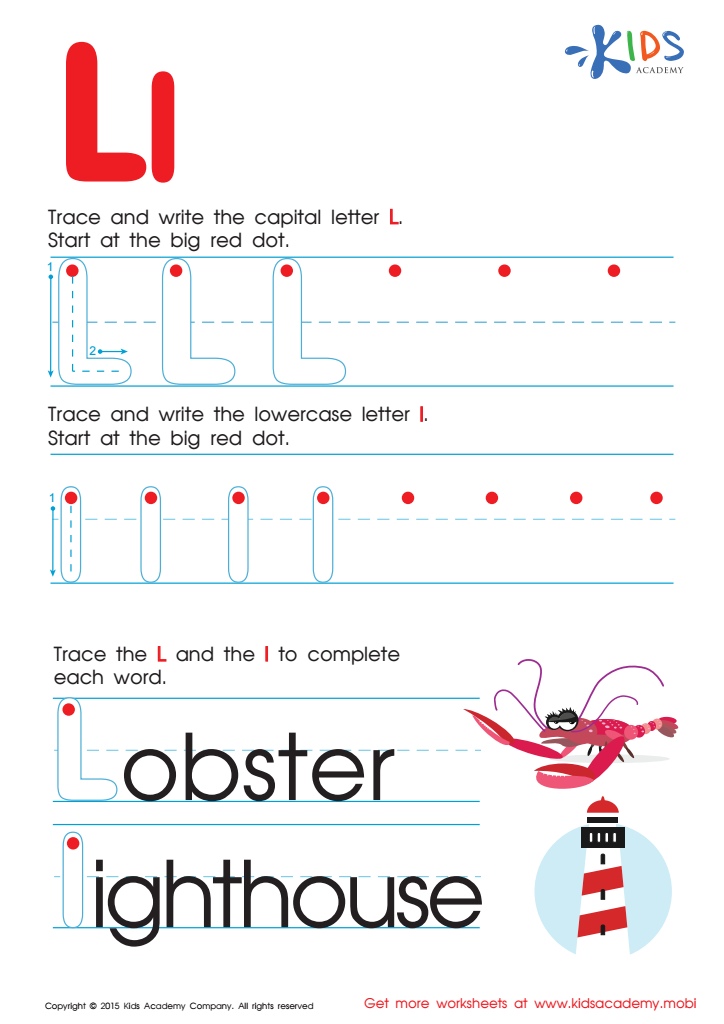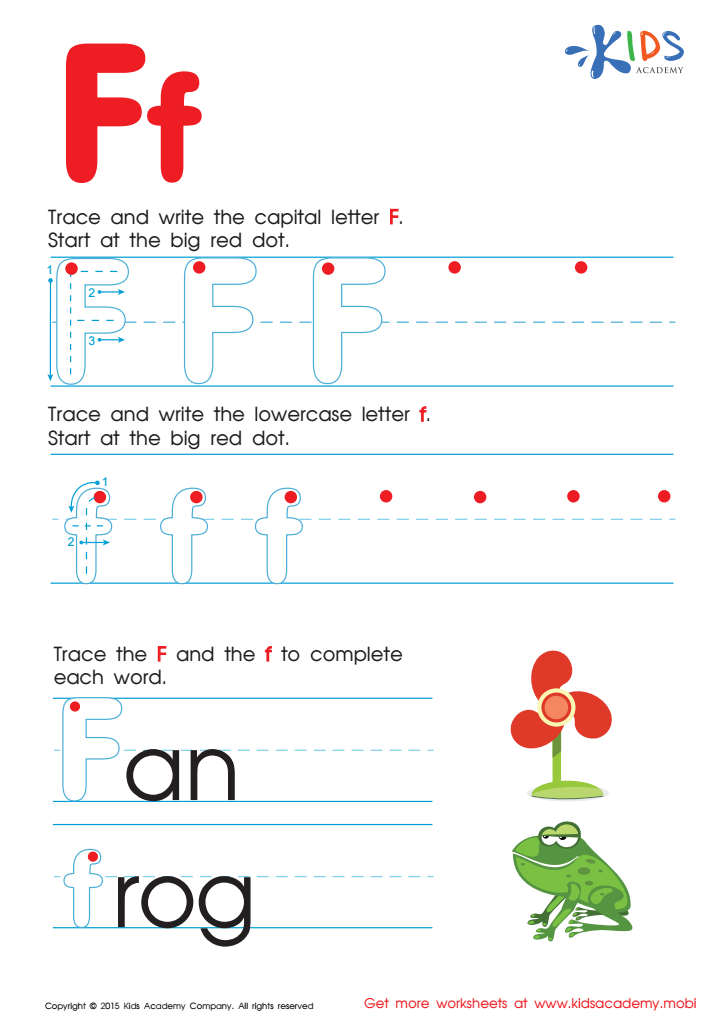Alphabet Learning Normal Letter Recognition Worksheets for Ages 4-5
3 filtered results
-
From - To
Unlock your child's potential with our engaging Alphabet Learning Normal Letter Recognition Worksheets designed specifically for ages 4-5. These interactive worksheets help young learners identify and recognize uppercase and lowercase letters, laying a solid foundation for reading and writing skills. Each activity features fun visual elements and age-appropriate challenges to keep children motivated and excited about learning. Parents and educators will appreciate the emphasis on skill development for early literacy through repetition and practice. Explore our comprehensive collection of printables today and nurture your child's love for language while boosting their confidence in letter recognition! Perfect for home or classroom use.


Uppercase Letters S, T, and U Worksheet


Letter L Tracing Page


Letter F Tracing Page
Alphabet learning and normal letter recognition for ages 4-5 is a crucial foundation for literacy development. At this stage, children are naturally curious and eager to explore language, making it a prime time for them to grasp letters and their sounds. Recognizing letters helps in the development of phonemic awareness, which is essential for reading success later on. When children can identify letters, they become more proficient in associating them with corresponding sounds, enabling them to decode words.
Furthermore, early letter recognition fosters confidence and encourages a positive attitude toward learning. When children can identify and name letters, they gain a sense of accomplishment that motivates them to engage further with books and learning materials. This stage also enhances their fine motor skills as they practice writing letters, a key milestone in their development.
For parents and teachers, recognizing the importance of letter recognition means prioritizing activities that reinforce these skills, such as incorporating letter games, songs, and storytelling. By creating a supportive environment rich in alphabet exposure, caregivers can significantly impact a child's readiness for reading and lifelong learning. Investing time in this foundational skill sets children up for success academically and supports their overall cognitive development.
 Assign to My Students
Assign to My Students





















